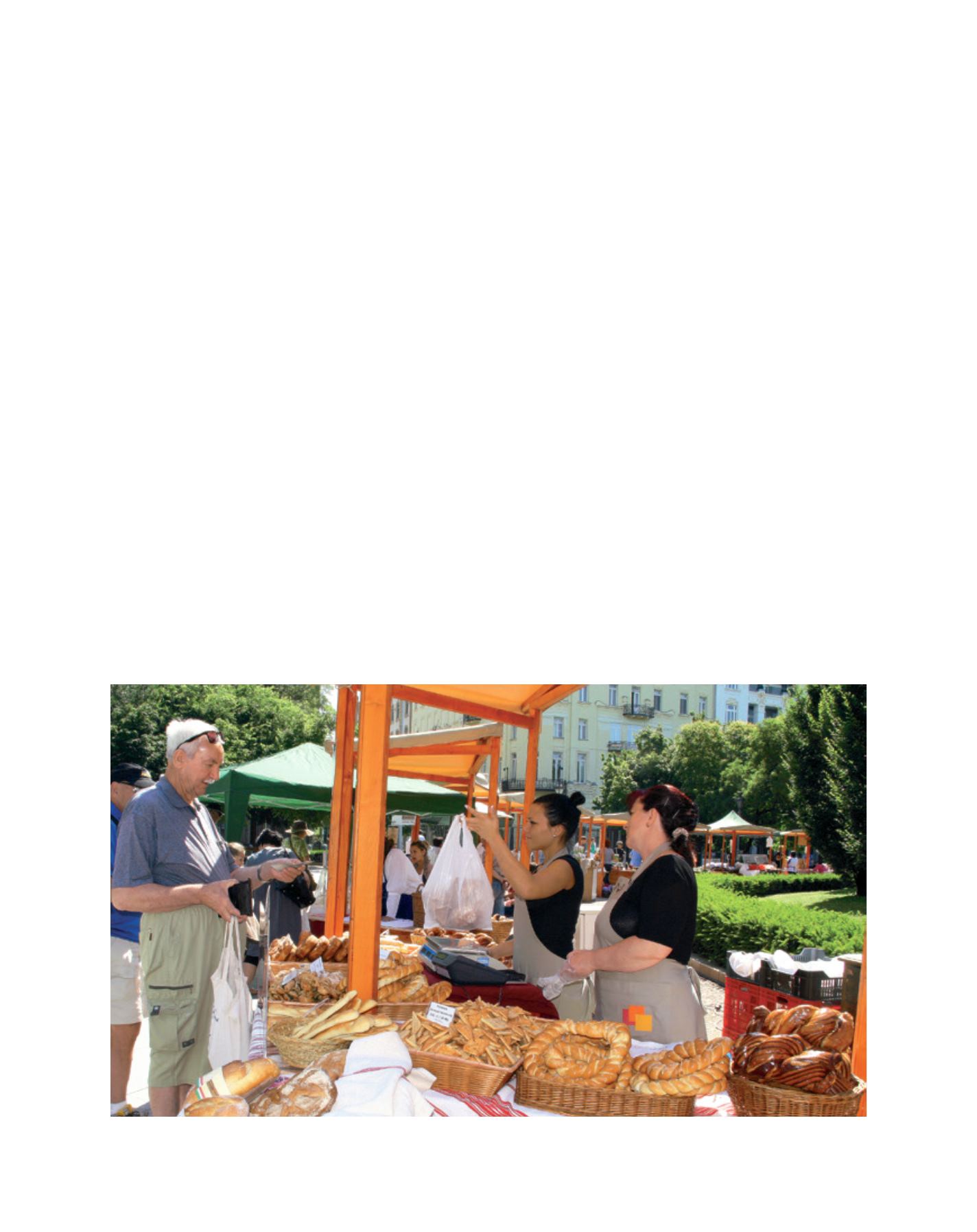

[
] 237
local population and it helps to bring producers and consum-
ers closer. Support is provided for investments to develop
trade infrastructure, measures for improving food safety in
the supply chain, targeted training and extension for family
farmers, and incentives for establishing farmers’ markets and
for promoting national and European Union (EU) quality
schemes. Supporting measures of the Hungarian Government
include special taxation rules and simplified administra-
tive procedures, improvement of the financial environment
(credits, financing tools), development of markets, targeted
support for young farmers, creating short supply chains,
encouraging diversification of on-farm activities and agrotour-
ism, and supporting organic agriculture.
There are also some elements in the 2014-2020 Programme
of the Common Agricultural Policy of the EU which are pref-
erential for family farmers. For instance the Small Farmers
Scheme offers simplified payment of agricultural subsidies,
less bureaucracy and no ‘greening’ obligation. In Hungary
approximately 70,000 small farmers will choose this option.
Special preferential taxation rules and simplified adminis-
trative procedures have been introduced in favour of family
farming in Hungary. Family farmers can choose among differ-
ent options for income calculations, and they may pay a lower
rate of personal revenue tax in case of lower income. Up to a
certain level of annual income (mainly for semi-subsistence
farmers) no tax has to be paid and there is no obligation to
submit a tax declaration.
Facilitating access to credits and other financial services
is also a key for the development of family farms. Farmers
can apply for special credits with a favourable rate, which is
offered by the Growth Credit Programme of the Hungarian
National Bank. The credit can be used for investments, financ-
ing current assets, pre-financing EU supports or for purchasing
land. Other agrofinancing tools are also provided such as long-
term credits for investments, interest and leasing support for
reconstruction and farm modernization, and interest support
for agricultural current assets (such as animal husbandry
development and the purchase of breeding animals).
Small-scale farmers often have difficulties in accessing
markets; they have limited power in negotiating contracts
with food processing and retail multinational companies and
they lack adequate capacities for efficient lobbying. To prevent
the misuse of power of those multinational companies, on
the initiative of the Ministry of Agriculture the Hungarian
Parliament unanimously adopted a law that prohibits unfair
market behaviour towards suppliers of agricultural products.
The regulation has proven successful; there has been a consid-
erable increase in compliance with the law in the past few
years. The Hungarian Government also signed agreements of
strategic cooperation with some major retailers and process-
ing companies to further strengthen their commitments.
Cooperation is essential to improve negotiating power and
facilitate market access for farmers. Cooperatives (farmers’
cooperatives, producer groups) facilitate access to credit and
also to technical, economic and market information. Joining
cooperatives can also help family farmers to optimize their
production and sales. As cooperative members they can
purchase inputs and services jointly, enabling them to bargain
for better prices and conditions. They can get financing for
development and investment more easily and therefore reduce
their dependency on integrator companies. Economies of scale
can also be achieved through common processing and sale.
Widely popular local markets are additional outlets at which family farmers can sell their products
Image: Balázs Bösze, NAKVI
D
eep
R
oots
















